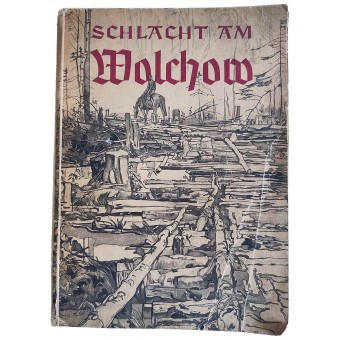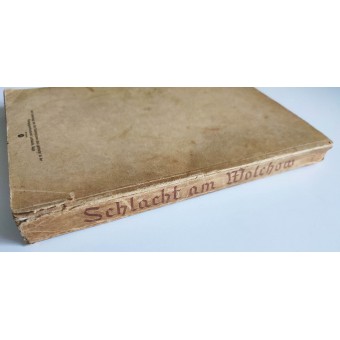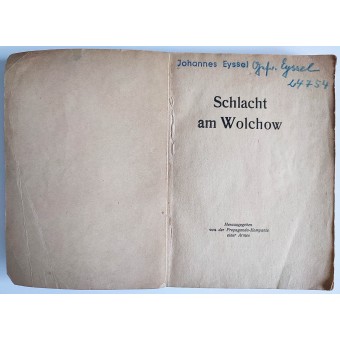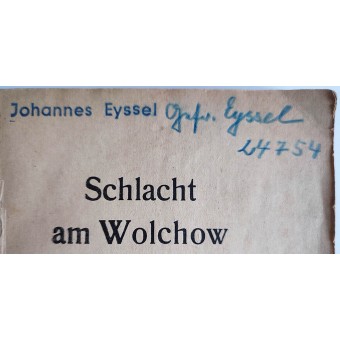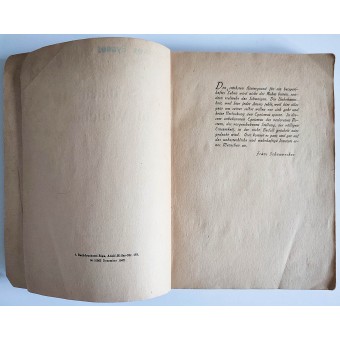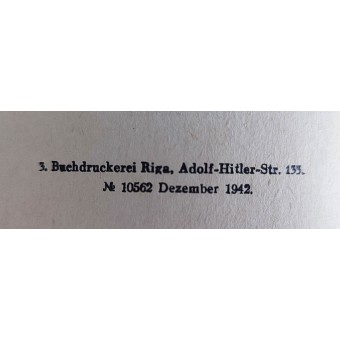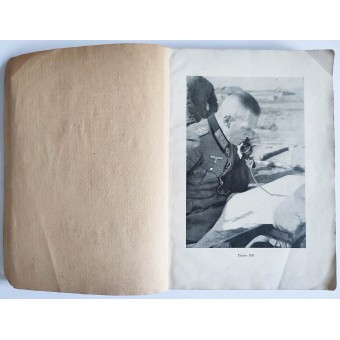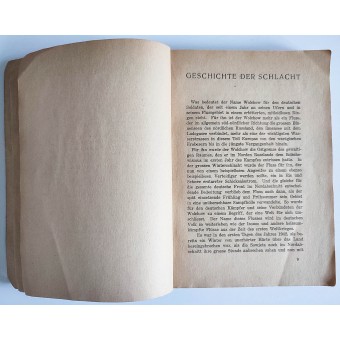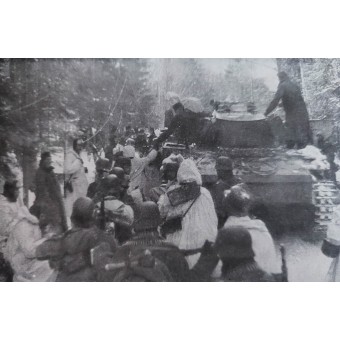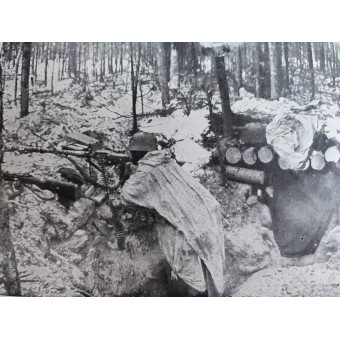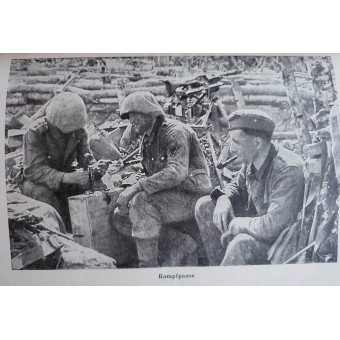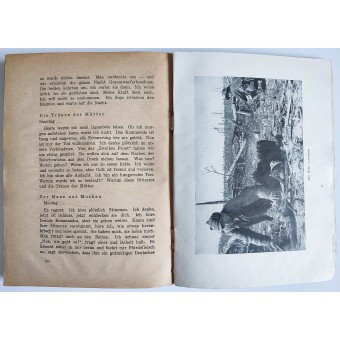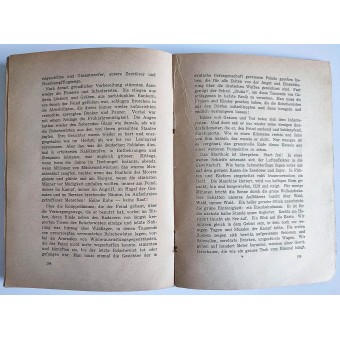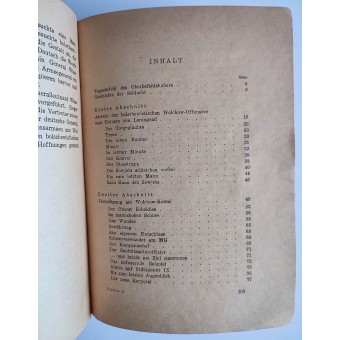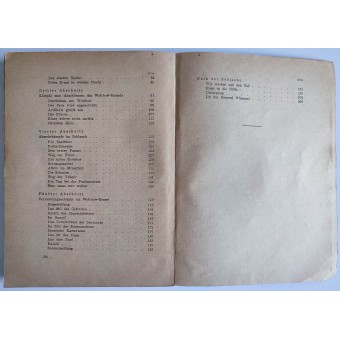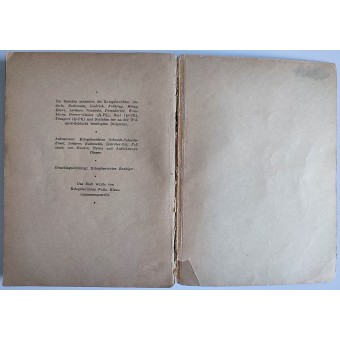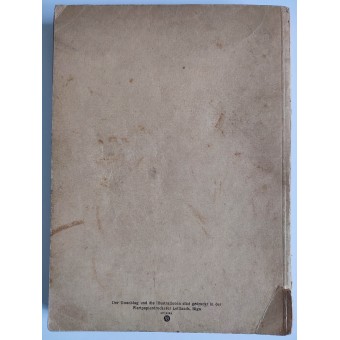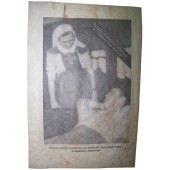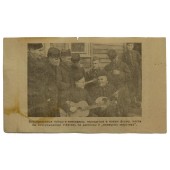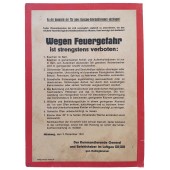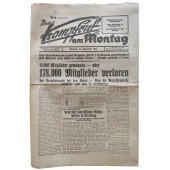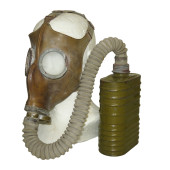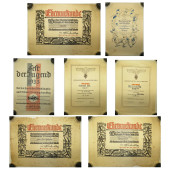Schlacht am Wolchow by Falko Klewe
Schlacht am Wolchow by Falko Klewe - The Battle on the Wolchow river.
This is a legendary book written by the German War Correspondents in 1942 just after the time when this battle has been finished.
On the first page we see name Johann Eyssel, gefreiter from German unit with field post number 24754. Having this number we can find his unit, it's 2. Kompanie Infanterie-Divisions-Nachrichten-Abteilung 215. This is a Signal Battalion 215, which was part of the Infantry Division 215 which fought in the battle on the river Wolchow.
More or less regular (not a pocket) size 20 x 15 cm, total 210 pages.
History of the Battle
(Translation from German)
What does the name Volkhov mean to the German soldier, who has been standing on its banks and in its river valley for a year, engaged in a fierce, relentless struggle?
For him, the Volkhov is more than just a river. It flows in a general south-north direction, connecting the great inland lakes of northern Russia, Lake Ilmen with Lake Ladoga. It is more than one of the most important waterways in this part of Europe, used by the Varangian conquerors until recent times.
For him, the Volkhov became the eastern boundary of the vast territory that he had wrested from Bolshevism in northern Russia during the first year of the war.
During the great winter battle, the river turned for him—from an unrivaled aggressor to an equally unmatched defender—into a fateful stream, frozen in ice and snow. The same decisive role for the entire German front in the northern sector remained with the river even when the late spring and early summer turned its surroundings into an endless swampy hell.
Thus, for the German soldier and his allies, the Volkhov became a concept, a name that encompasses an entire world. The name of this river will live on in the memory of the German people just as the Isonzo and other fiercely contested rivers from the First World War.
In the early days of 1942, when a winter of unprecedented harshness had already descended upon the land, the Soviets saw their great hour approaching in the northern sector of the front...
Schlacht am Wolchow by Falko Klewe - The Battle on the Wolchow river.
This is a legendary book written by the German War Correspondents in 1942 just after the time when this battle has been finished.
On the first page we see name Johann Eyssel, gefreiter from German unit with field post number 24754. Having this number we can find his unit, it's 2. Kompanie Infanterie-Divisions-Nachrichten-Abteilung 215. This is a Signal Battalion 215, which was part of the Infantry Division 215 which fought in the battle on the river Wolchow.
More or less regular (not a pocket) size 20 x 15 cm, total 210 pages.
History of the Battle
(Translation from German)
What does the name Volkhov mean to the German soldier, who has been standing on its banks and in its river valley for a year, engaged in a fierce, relentless struggle?
For him, the Volkhov is more than just a river. It flows in a general south-north direction, connecting the great inland lakes of northern Russia, Lake Ilmen with Lake Ladoga. It is more than one of the most important waterways in this part of Europe, used by the Varangian conquerors until recent times.
For him, the Volkhov became the eastern boundary of the vast territory that he had wrested from Bolshevism in northern Russia during the first year of the war.
During the great winter battle, the river turned for him—from an unrivaled aggressor to an equally unmatched defender—into a fateful stream, frozen in ice and snow. The same decisive role for the entire German front in the northern sector remained with the river even when the late spring and early summer turned its surroundings into an endless swampy hell.
Thus, for the German soldier and his allies, the Volkhov became a concept, a name that encompasses an entire world. The name of this river will live on in the memory of the German people just as the Isonzo and other fiercely contested rivers from the First World War.
In the early days of 1942, when a winter of unprecedented harshness had already descended upon the land, the Soviets saw their great hour approaching in the northern sector of the front...


